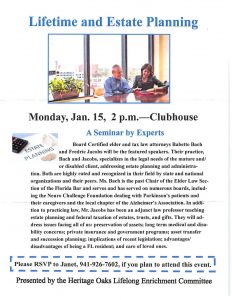Probate is the legal process of proving that a Will is valid in court and administering the estate of the decedent according to the terms of their Will. If you are the personal representative of an estate, probate can become a complex and overwhelming matter. In Florida, the probate process can be broken down into four fairly simple steps. These steps will help you acquire a better understanding of how the probate process works and provide guidelines to follow that will help you fulfill your various duties.
Step 1: File a petition and give notice to the heirs and beneficiaries
File a petition with the probate court. You will either need to admit the Will and appoint the personal representative or, if there is no Will, appoint an administrator for the estate. In some situations, you will need to provide notice of the court hearing to all interested parties, which is usually the beneficiaries and heirs.
Step 2: Give notice to all creditors
Following appointment by the court, the personal representative must give written notice to all creditors of the estate that indicates the date by which claims must be submitted. A notice will need to be filed publically to notify any unknown creditors, which can be done through the newspaper. Then, the creditors must file a valid claim with the court in order to get paid.
Step 3: Pay all debts, including taxes and funeral expenses
As the personal representative, you need to ensure that all funeral bills and final expenses have been paid. Additionally, determine which creditors’ claims are legitimate and pay those that are.
Step 4: Ask for permission to transfer remaining assets to beneficiaries
Once the creditor waiting period is over and all bills are paid, you can petition the court for the authorization to transfer assets to the beneficiaries indicated in the decedent’s Will and then close or discharge the probate proceeding.
If you need legal advice regarding the probate process, please contact our office at: 941-906-1232 to schedule an appointment with one of our attorneys.


